One of the most rewarding aspects of running a decades-long education program is following up with former students to learn where their experiences have taken them, both personally and professionally.
Brazil to Bermuda and Back Again
March 29, 2019
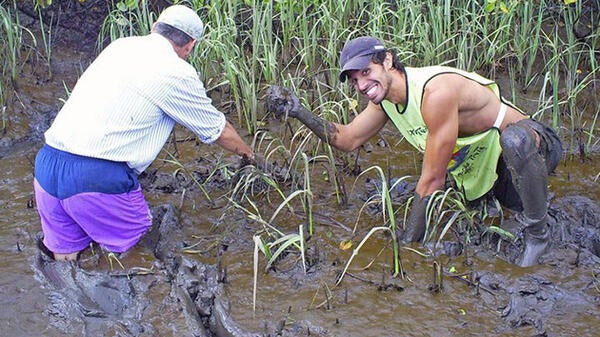
Growing up on his parent’s coffee farm in Brazil, Samuel Faria didn’t spend much time thinking about the ocean. In fact, he wanted to work with teenagers as a high school teacher or college professor. When he was 8, his family moved to a small town in southeastern Brazil, which was his home until he began his undergraduate degree in biological sciences at the University of São Paulo. This is where his passion for science began, and also where he went on to earn his master’s and doctoral degrees in comparative biology.
Long-lost U.S. Air Force Bomber Located in Bermuda
March 29, 2019
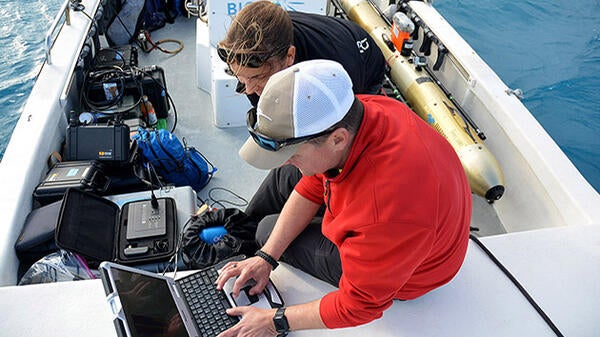
The crash and subsequent disappearance of a U.S. Air Force B-24 bomber nearly 74 years ago has been resolved with the discovery of wreckage in Bermuda by a team of scientists, students, and underwater robots.
Dalhousie and BIOS Announce New Collaborative Program
May 20, 2014
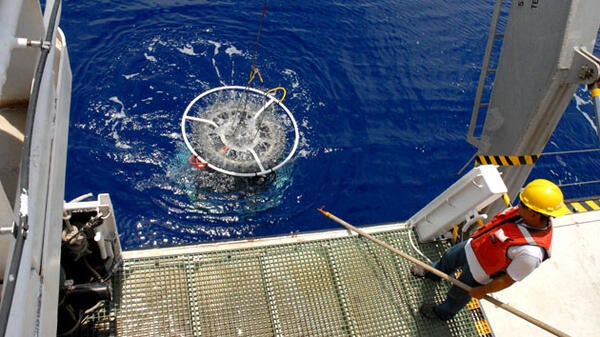
After years of collaborating on a variety of education programs, Dalhousie University and BIOS have taken a significant step in formalizing and expanding their partnership: the launch of new opportunities through the Dalhousie-BIOS Experiential Learning Fund. This fund, established in 2011, was designed to strengthen ties between these two leading ocean research institutions and create a continual flow of students from Dalhousie to BIOS. While many Dalhousie students have taken classes or conducted internships at BIOS over the years, there was no formal program supported by the Dalhousie-BIOS Experiential Learning Fund…until now.
BIOS and Bermuda Sloop Foundation Form New Collaboration
May 29, 2014
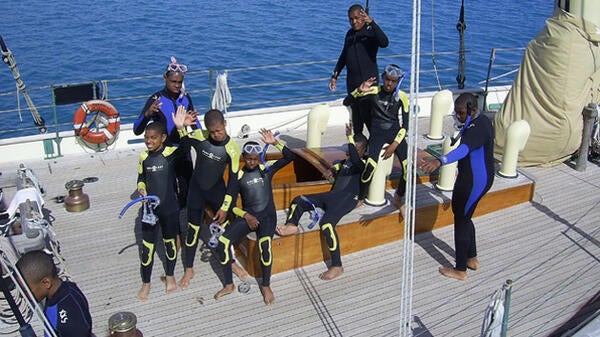
Since 2006 Bermuda Sloop Foundation has been providing Bermuda’s youth with experiential learning and character development aboard their unique floating classroom: Sail Training Vessel (STV) Spirit of Bermuda. In that time, more than 3,000 students have stood upon the vessel’s deck, learning critical life skills including communication, teamwork, nutrition, and respect.
BIOS Celebrates 25 Years of Oceanographic Time-series Science
May 09, 2014
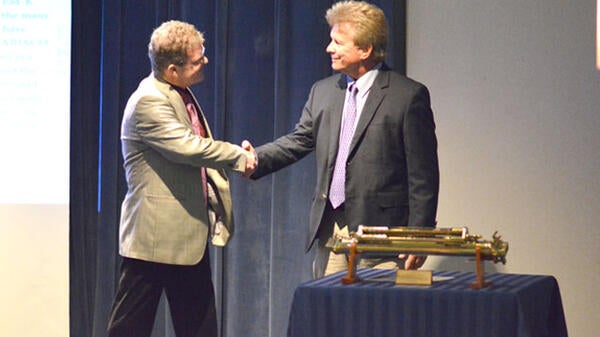
On April 24, 2014, BIOS faculty, staff, and supporters gathered in the Tradewinds Auditorium at BUEI to highlight a quarter century of science carried out through the Bermuda Atlantic Time-series Study (BATS), and to celebrate the numerous individuals who have contributed to the growth and longevity of the oceanographic time-series.
Understanding the Unique Relationship Between Crustaceans and Sea Anemones
June 09, 2014
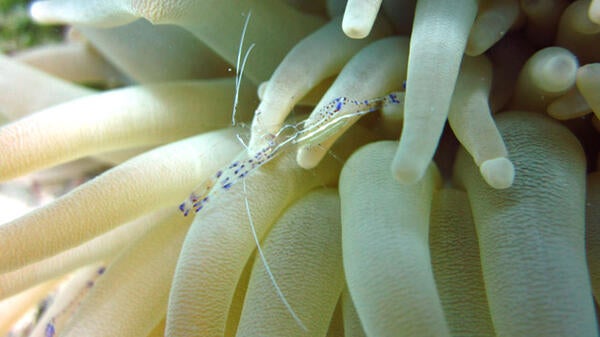
When most people think about sea anemones they usually think of clownfish as well—the small orange, black, and white fish that make their homes within the sea anemones’ tentacles. Anemones and clownfish have a symbiotic relationship known as “mutualism,” in which each species benefits the other. Able to withstand an anemone’s stinging tentacles, the clownfish use the anemones for protection from predators. In return, the clownfish clean the anemones of parasites, provide a source of nitrogen for growth and regeneration, and even help circulate the water around the anemones. While this is one of the most recognizable forms of mutualism in the ocean, sea anemones also have symbiotic relationships with a variety of crustaceans.
Princeton Students Learn Marine Biology at BIOS
June 25, 2014
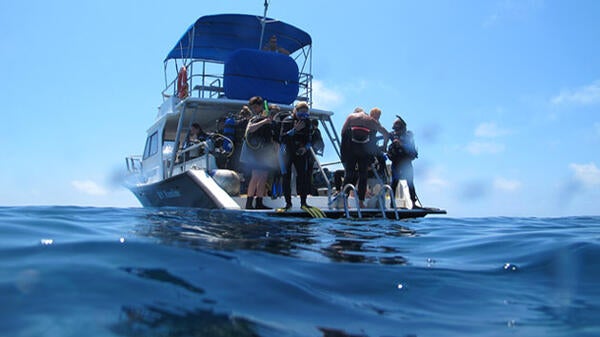
For the past nine years, a group of students from Princeton University has traveled to Bermuda each June to participate in a four-week marine biology course offered through a unique partnership between BIOS and the university. Co-taught by Dr. Samantha de Putron (Associate Scientist at BIOS and Visiting Lecturer at Princeton) and Dr. James Gould (Professor of Ecology and Evolutionary Biology, Princeton), the course is an intensive field program that covers all aspects of marine biology. Dr. Carol Gould (science writer) adds a unique perspective as a guest lecturer and—this year—Dr. Penelope Barnes (BIOS Education Director for University Programs) and Kaitlin Baird (BIOS Science Education Officer) also contributed as guest lecturers.
2014 Chief Scientist Training Cruise – The Story Behind the Science
June 30, 2014
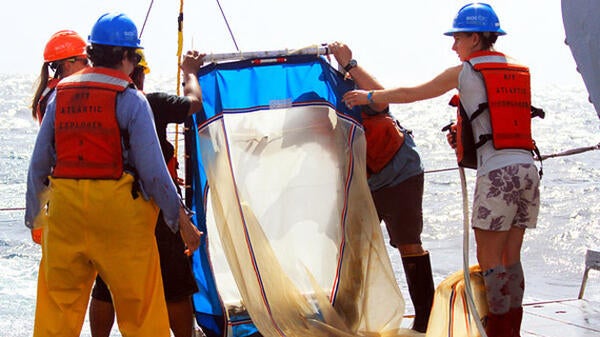
Earlier this month, the 2014 University-National Oceanographic Laboratory System (UNOLS) Chief Scientist Training Cruise wrapped up, with the R/V Atlantic Explorer returning to her berth at BIOS after a nine day cruise between Barbados and Bermuda. The purpose of these cruises is to give early-career marine scientists, including PhD students, insight into what it takes to successfully plan and execute a research cruise—everything from acquiring funded ship time to mobilizing laboratory equipment and supplies, from reporting at sea to living aboard a working research vessel.
Glider’s Work During Hurricane Reveals Unique Insights About Storm Dynamics
December 30, 2014
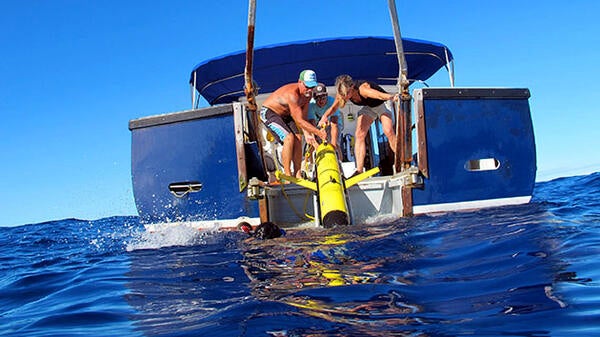
Three days before Hurricane Gonzalo hit Bermuda in October, BIOS researchers launched their new glider Anna directly into the storm’s path for a rare look at hurricane dynamics below the sea surface.
